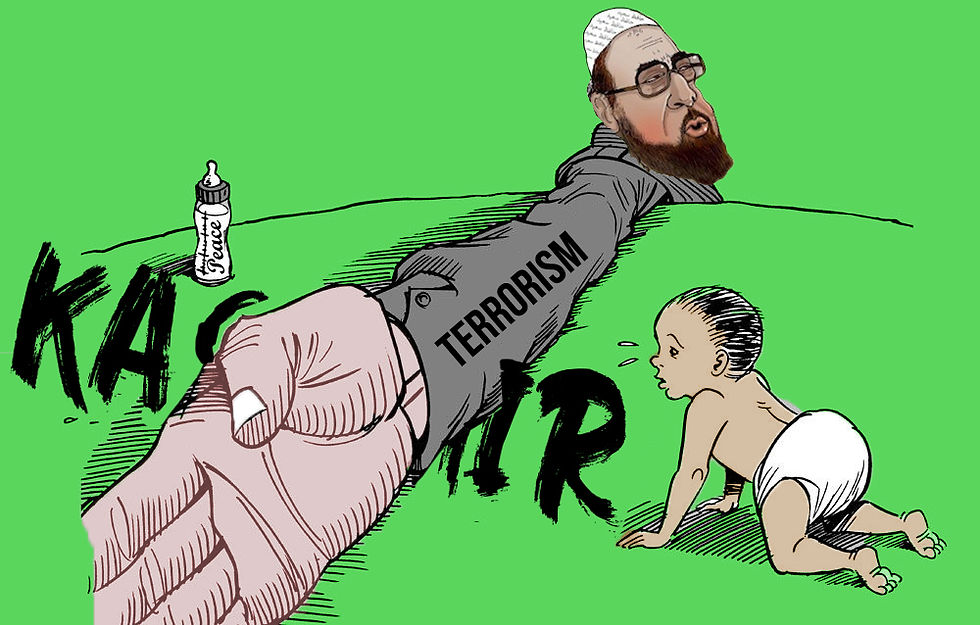Civil society acts as a bridge between the state and the people. It should help to express itself as a desire for greater civility in social relations.


The targeted killings of eleven civilians over the past fortnight in Kashmir Valley seems to be part of a larger design by the separatists and their benefactors in Pakistan. They have been losing ground to the normalcy narrative in the valley. The safe conduct of the District Development Council (DDC) elections in December 2020 and successful handling of the COVID-19 crisis by vaccinating 100 per cent of the eligible population with first dose vaccine have rattled these lobbyists. Significant local participation in Swarnim Vijay Varsh celebrations across the J&K Union Territory (UT) has further unnerved them. Moreover, these separatists failed to instigate protest on the death of Hurriyat separatist leader Syed Shah Geelani. The cumulative failure to mobilise masses against government policies has infuriated Pakistani handlers and frightened the local manipulators. As a result, they seem to be losing ground to development dialogue which may be anathema to their cause.
Meanwhile, the development plan is gaining ground. There has been a 45 per cent surge in UT July 2021 GST collection. It has increased from Rs 298 Crore in July 2020 to Rs 432 Crore in July 2021. After two years of continuous fall in tourism, this year is witnessing a record footfall of tourists in Kashmir Valley despite COVID-19 related restrictions. “Aao Kashmir” initiative by the UT government to attract more tourists to the valley has been lapped up by the tour and travel operators in Kashmir. They are excited and expecting an increased footfall in the number of tourists during autumn and coming winter. For separatist forces, a thriving tourist season and prolonged spell of peace are detrimental to their existence. It is likely to erode their credibility from the memory of the residents. Hence, the recent spate of targeted killings of locals and non-locals has been engineered. The intent is to keep the J&K in the news while keeping the escalation along the border within the threshold.
The separatists’ cups of owes are full. For the first time, they are devoid of leadership, agendas, ideas and funds. Security forces have neutralised more than 371 terrorists (232 terrorists in 2020 and 139 terrorists in 2021). The tanzeems are struggling to remain afloat. The fresh infusion into the cadre strength is at an all-time low as the infiltration across the line of control has been difficult. After the death of Syed Shah Geelani, even the Hurriyat is finding it challenging to engineer protest. The strike by security forces on white collared over ground workers (OGW) have rattled the lobbyists’ support base. Hence, to boost the sagging morale of valley-based terrorists, the lobbyists have hit on the plan of targeting innocent local and non-locals. It helps in weaving a counter-narrative of fake normalcy while putting fear in people’s minds. The killing of innocents has been a time-tested formula adopted by these separatists during November 2020 DDC elections. On 04 November 2020, the terrorists killed one labourer and injured 35 locals near the Jehangir Chowk area of Srinagar.
Unfortunately, civil society has not been assertive in J&K, especially against the trouble creators. Probably, for the first time the civil society got active in J&K in the recent time was on 05 November 2020. A declaration by the 267 civil society members comprised of retired judges, civil servants, members from academia and veterans from the Armed Forces. These members were critical of their two former Chief Ministers for renegading India’s sovereignty and pandering to the divisive propaganda. According to the declaration, Mehbooba Mufti’s contemptuous attitude about not flying the national flag of India in Kashmir and Dr Farooq Abdullah’s assertion of seeking Chinese support to restore Article 370 was seditious. The opinions by these former Chief Ministers could be a by-product of angst due to their prolonged period of detention in house arrest. Still, it does no good to them and the UT. Provocative statement by top political leaders from the UT is unwarranted. It has the potential to vitiate the law-and-order situation and imperil the life of the common people who have started with their life chores post-pandemic. The current statement from the political leadership has not been encouraging. They are playing into the hands of separatists without giving a chance for peace to stabilise the situation in J&K.

Civil society acts as a bridge between the state and the people. It should help to express itself as a desire for greater civility in social relations. However, undermining of the civil society in a disturbed area results in diminishing of the social capital. It adversely affects development and harmony. The fear factor and divisive polity practised in the Kashmir valley have stunted the growth of civil society. The opportunistic framework created by family-owned political parties and the Hurriyat have muddled the social environment and compromised the governance mechanism providing space to separatist forces. Despite having a large number of print and electronic media networks and NGOs, Kashmir Valley has not been able to correct the vexed socio-political problem. Condemning ghastly incidents like the recent killing of innocent civilians is one thing and coming out in the open against this dastardly act is another. Moreover, the ambivalent attitude of the political leadership has failed to inspire the youth. With 65 per cent of the population under 35 years of age, it is essential that the youth in Kashmir be a productive part of civil society and not fall prey to degenerative propaganda.

Comments